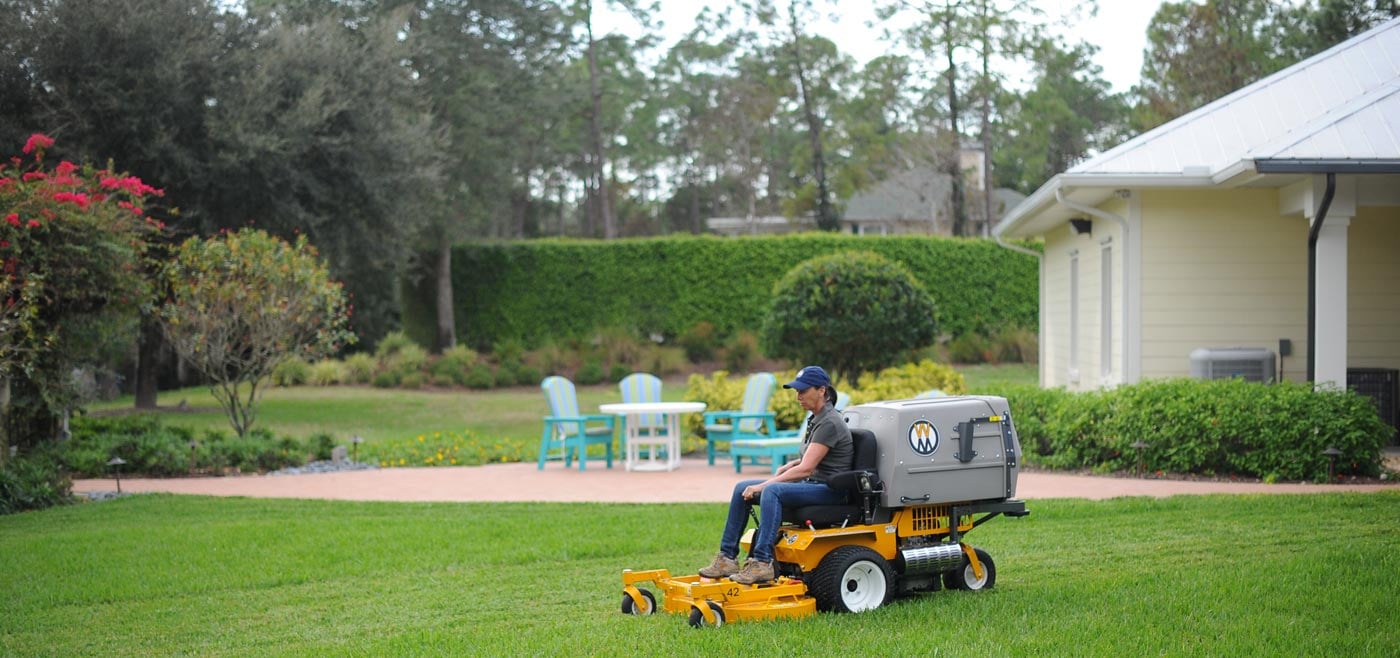Blueville Nursery in Manhattan, Kansas, is different from most nurseries around the country. Even though 30 of the company’s 45 acres are devoted to growing trees, evergreens, shrubs and sod, the nursery itself accounts for a small percentage of annual sales.As a matter of fact, the nursery is only one of several divisions for a company that is celebrating its 50th anniversary this year. Landscape installation and maintenance bring in the lion’s share of revenue, followed closely by government contract work with nearby Fort Riley, irrigation installation and maintenance, and the garden center.
“Most of the nursery stock is grown primarily for our landscaping and retail sales, with only surplus plants being marketed wholesale,” explains company president and CEO Keith Westervelt. “The company’s growth and diversification over the last decade has presented some tremendous opportunities, not only to the company, but to its employees, as well. We’re growing people, not just trees.”
Visionary
Westervelt attributes much of the company’s success to his 77-year-old father, Darrell, who purchased the nursery in 1962, and later laid the foundation for long-term growth by establishing it as a Subchapter S corporation. The move allowed other employees to become stockholders and true stakeholders in the company. Dustin Stoddard, general manager, is one of them.

“There’s no question that the culture here and opportunities for growth have been instrumental to the company’s success,” says Stoddard, who started working for Blueville in 1999 while a sophomore at Kansas State University. “We have three employees who have been here more than 30 years and many others like me who started here right out of K-State to make landscaping their career. In fact, we probably have close to 20 K-State graduates on board.”
The company has 40 full-time employees and another 40 to 60 seasonal workers, most of whom are also students. “We’re fortunate to have the university nearby,” Stoddard adds. “The students want to gain practical experience while in school, which gives us access to a motivated labor source.
“I also think that part of the attraction of working here is the value system shared by ownership,” Stoddard continues. “The company offers health insurance and matching 401k to full-time employees, and barbecues are a staple during summer months. You feel like you’re working for a family, and you are, and more importantly you feel like you’re part of the family.”
Growth Spurt
Located two hours west of Kansas City, Manhattan has been insulated from the recent housing meltdown thanks to a vibrant agriculture industry, along with the presence of nearby Fort Riley and the university. In fact, much of the company’s growth has occurred over the last 5 to 10 years.
The landscape division is the biggest contributor, responsible for close to 40 percent of the company’s annual sales revenue. Residential construction never really slowed as homeowners continued to invest in their properties—expanding landscapes, adding water features, and installing outdoor kitchens.
The lawn care and maintenance division kept pace, fertilizing an estimated 12 million square feet of turf throughout the year while five maintenance crews mow upwards of 5 million square feet a week among 220 accounts. The Fort Riley division, which didn’t exist five years ago, has also boosted sales.
The company’s equipment lineup, which includes 47 trucks, 29 trailers, eight skid-steer loaders and seven tractors, reflects the workload and what the company founder says has been the biggest change in the industry over the last 50 years: mechanization.
On the maintenance side, each of five mowing crews goes out with two 23-hp Walker Mowers equipped with either a 48-inch GHS deck or 52-inch sidedischarge deck. They also operate one 48-inch side-discharge deck. Not included in the tally is Westervelt’s personal Super B at home. The government division also employs several wide-area mowers.
“The maintenance division started using the Walker Mower in 2004,” relates Jade Barta, maintenance division manager. “We wanted a compact mower that would accommodate both large and small properties. The Walker Mower fit the bill to a tee. Crews can use them virtually anywhere. They’re not as heavy as other outfront riders and the striping is great.”

Also a K-State graduate, Barta says he prefers the mower over those with higher ground speeds that bounce over the turf. “Speed and college-age operators aren’t a good mix either,” he adds with a knowing smile.
Stoddard estimates that crews annually log 600 to 800 hours on their mowers, which are rotated out every three years around the 2,000-hour mark. In between, they receive tender loving care by Shop Manager Adam McAsey.
“They’re not hard to work on,” says McAsey, yet another K-State graduate. “We check them over every night. The mowers all receive scheduled oil changes and go out every morning with a newly sharpened set of blades. Having the blades sharp just adds to the manicured look.”
A La Carte Menu
Landscape maintenance customers can select from a variety of a la carte services that include pruning, weeding, insect control, leaf cleanup and mowing—with two stipulations: Those who select mowing are also required to sign up for the company’s lawn care program, and all customers are under a nine-month contract, excluding ones who also want the company’s snow removal service. The Walker Mower plays a role there, too, clearing sidewalks with a snowblower attachment.

Despite the company’s growth, growing is not the end game for the company president, his father (who is still active in the company), or any of the company’s other stockholders. The company’s mission statement and goals emphasize being reputable and professional and doing great work. The stated end-product of these sentiments is shared by most every successful company large or small in any industry: to have a profitable business which provides satisfying employment. The two work in concert.





 Site Search
Site Search



